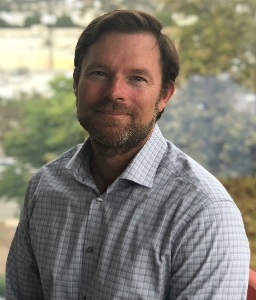Joel Milam, University of California, Irvine – Follow-Up Care for Young Adult Cancer Survivors
 On University of California, Irvine Week: Lifelong follow up care is critical for young cancer survivors.
On University of California, Irvine Week: Lifelong follow up care is critical for young cancer survivors.
Joel Milam, professor of epidemiology, examines why.
Joel Milam, PhD, is a professor of epidemiology and biostatistics at the University of California, Irvine’s Program in Public Health. He also has an adjunct appointment at the UCI School of Medicine’s Department of Hematology/Oncology.
Dr. Milam’s research focuses on young adult cancer survivorship, positive psychology, and HIV prevention/control. Dr. Milam’s interest in cancer research led him to become the Co-Leader of the Cancer Control Program at the Chao Family Comprehensive Cancer Center, where he facilitates research to identify and reduce cancer risk, and improve quality of life throughout the cancer care trajectory. Aside from teaching at UCI, Dr. Milam is a Co-Founder & Co-Director of the Center for Young Adult Cancer Survivorship Research. The Center is an interdisciplinary collaborative, including affiliate faculty, trainees, and patient advocates at UCI and USC. The research focuses on population health, health services and systems, wellbeing, quality of life, and medical outcomes among younger cancer survivors under the age of 50.
Follow-Up Care for Young Adult Cancer Survivors
Treatments for childhood cancers have been increasingly successful, with a greater than 80 percent 5-year survival rate. But there are many lifelong health risks that surface in the years following treatment.
As survivors age, their risk for late effects increases and could include heart problems and second cancers – and their engagement in survivorship care decreases.
That’s why life-long follow-up care is crucial.
The research group examined factors associated with lifelong, cancer-related follow-up care.
We had over 1,200 young adult survivors of all forms of pediatric cancers, come to us from the Los Angeles County cancer registry. These survivors were diagnosed throughout LA County between 1996 and 2010 and were largely in their mid-20s at the time of the survey.
54% of this population-based sample was Hispanic – an important fact because this group is under-repesented in research literature.
Participants responded to a survey about their physical and mental health, insurance coverage, and healthcare they received.
We found older age and Hispanic ethnicity to be associated with lower levels of cancer-related, follow-up care. These differences remained significant after adjusting for other important factors, such as health insurance and economic status.
Other factors included follow-up care, including obtaining adequate insurance coverage, having a primary care physician, and obtaining a written treatment summary that can be discussed with doctors.
We recommend healthcare support for young cancer survivors, including increased patient and provider education, healthcare services, and greater use of written treatment summaries to help these individuals manage the transition from pediatric to adult healthcare settings to maintain their health over their lifespans.


